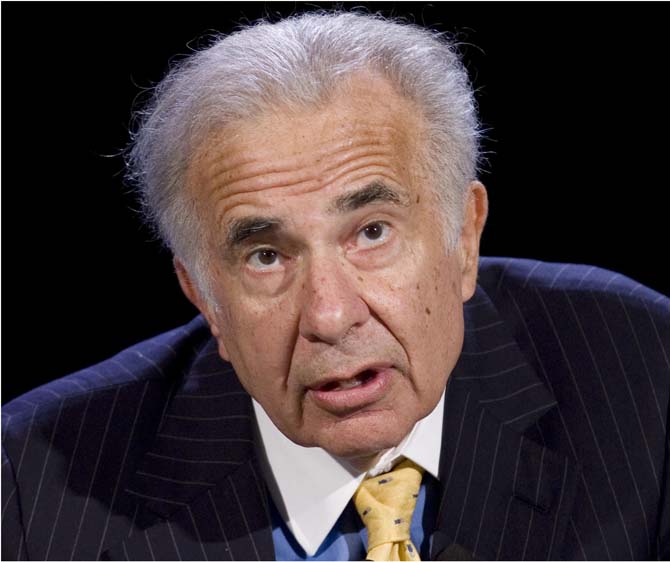As college students, we all enjoy our Netflix subscriptions, Dell computers and Apple products. So what do they all have in common? The same activist shareholder: Carl Icahn.
Icahn is a corporate raider who goes into a company and buys up a large stake, changes the company, makes a quick profit and then leaves. He has been doing it for decades, and tech companies are not immune.
Icahn, who was once considered the inspiration for Gordon Geck (the protagonist of Oliver Stones’ film “Wall Street”) is a legendary hedge fund manager worth around $20 billion, making him the 19th richest American and the epitome of a corporate power broker. To give you perspective, he can lose Jay Z’s net worth 35 times and still be a billionaire.
Today, he is considered a hero to shareholders because of the “Icahn lift.” Whenever Icahn has an interest in a company and he starts buying up shares, the stock price for all other shareholders increase in value, hence the lift.
He also has the ability to influence company policy. Not too long ago, Netflix tried to split the company in two and hiked up subscription fees.
Icahn jumped in and bought 10 percent of the entire company for $321 million and strong armed Netflix to change its move to split the company. Today, the company is still in one piece and Icahn’s stake is worth just north of $1.7 billion — a nice, quick $1.4 billion profit on
paper.
Another major raid he made was in Dell. Over the summer, CEO Michael Dell offered his shareholders a buyout deal in order to take the company private. Dell believed the company had fallen far behind its competitors and needed to innovate with risk without the cold feet of speculative public shareholders.
Before Dell finalized the deal, Icahn bought $2 billion worth of shares of Dell and tried to block the buyout. So far he has delayed the deal to go private.
Icahn’s most recent raid is in a company most of us use on a daily basis.
In what could be considered one of the most valuable tweets in history, Icahn revealed on Twitter that not only does he have a large stake in Apple, but he believes that the company is extremely undervalued.
Since the tweet on Aug. 13, the company stock has jumped nearly 7 percent, translating to the value increasing by $30 billion.
When was the last time one of your tweets made $30 billion?
Icahn is just the latest and probably most influential shareholder to push for Apple to do what is called a buyback.
When a public company has high profits, often it offers a buyback deal for its shareholders in order to share the profits and push the price back up.
Currently, Icahn wants Apple to offer a $150 billion buyback in order to push its stock price back to its historic $700 peak in August 2012. Buybacks are common for many companies on Wall Street, but no tech company has ever leveraged itself to push the stock price up. Some worry that this deal could hurt Apple by limiting its capital for innovation.
Luckily for Apple, the company is massive and has a market value of more than $450 billion. Icahn’s stake is less than 1 percent, and he can’t use leverage against the Apple board like he could with Dell.
But Icahn’s influence on Wall Street may sway other shareholders to push for the buyback.
This buyback can potentially change not only the culture
of Apple but of Silicon Valley as a whole. Apple has been a leader in Silicon Valley for many years, and now it might lead the rest into a more Wall Street-like model instead of what Apple
has always been known for:
thinking differently.
Opinion: The billionaire who affects the products we use every day
September 8, 2013
Activist investor Carl Icahn speaks at the World Business Forum in New York in this photo from Oct. 11, 2007. In a letter that became public Tuesday, Icahn is giving back all of the money that outside investors hold in his hedge funds. In a letter to limited partners, the billionaire investor said he did not want to be responsible to investors for “another possible market crisis,” especially given the rapid increase in markets over the past two years. Icahn, who has built a reputation as an activist investor, said he was also concerned about the economic outlook and political tensions in the Middle East.





